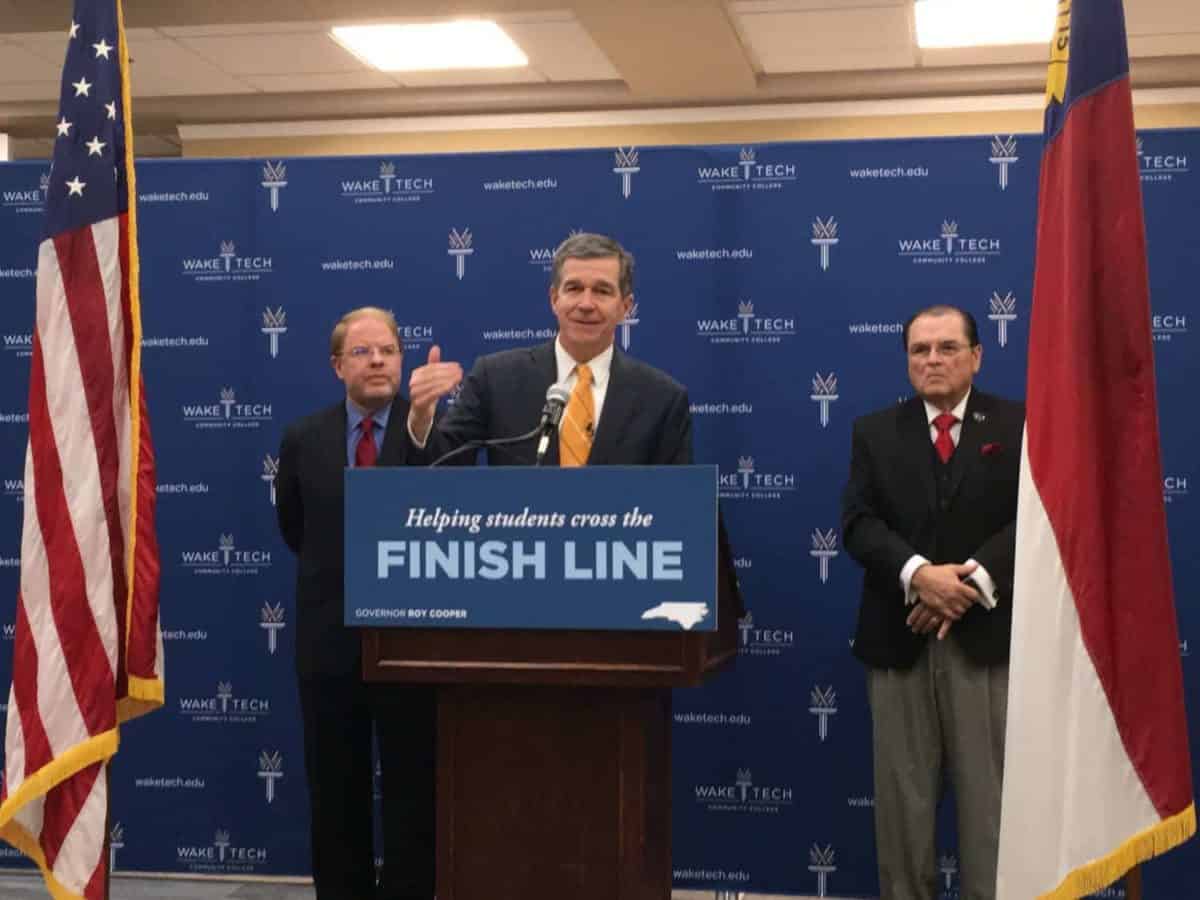

Note: This interview is an excerpt from our Awake58 newsletter. We encourage you to subscribe by clicking here.
Earlier this year we covered the launch of the Finish Line grant program in North Carolina. When the program was announced, the following details were shared: “The Finish Line Grants program will use up to $7 million in federal funds to help students pay for items like course materials, housing, medical needs, child care, or unexpected financial emergencies. Gov. Cooper said he plans for the scholarships to go out within 72 hours of the eligible application so that students who might otherwise have to drop out can stay in school.”
We checked in with Gov. Cooper this week regarding the status of the Finish Line grants program, including a number of changes they hope will lead to more students participating.
Nation: Governor Cooper, could you share a little more regarding the purpose of Finish Line Grants?
Gov. Cooper: Far too many students have challenges other than academic reasons for not finishing school. A car repair should not keep someone from graduating, but it can. The Finish Line Grants program helps community college students who face unexpected financial emergencies by giving grants of up to $1,000 per semester, so students can finish their training and get a good-paying job.
Nation: Would you provide an update on any changes to the Finish Line Grant process?
Gov. Cooper: Since we launched Finish Line Grants over the summer, we have seen the need for help across our state, particularly in areas hit by Hurricane Florence. That’s why we’re expanding eligibility to allow more students to get that help. Now, students only need to have completed 50 percent of their training instead of 75 percent. We also know students of all levels of academic achievement need help, so we’re capping the maximum GPA required at 2.0.
Nation: What else should people know about Finish Line Grants?
Gov. Cooper: The Finish Line Grants program is built on local partnerships between community colleges and workforce development boards. The program will be successful only if these partners work together to implement and promote the program. We need both colleges and boards to get the word out in many different ways to be sure all students are aware of the Finish Line Grant opportunity. If students don’t know help is available, they may not ask.
I know the professionals on the front lines at both community colleges and NCWorks Career Centers are constantly asked to do more with less, and I appreciate every effort to help our students enter the workforce. I am grateful for everything they do to make North Carolina job ready.
For more information on the Finish Line Grants program, please visit www.ncjobready.nc.gov/finish-line-grants.


